by Erik Swyngedouw**
It’s useless to wait-for a breakthrough, for the revolution, the nuclear apocalypse or a social movement. To go on waiting is madness. The catastrophe is not coming, it is here. We are already situated within the collapse of a civilisation. It is within this reality that we must choose sides.
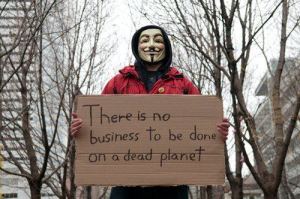
There is no business to be done on a dead planet. Source: collapseofindustrialcivilization.com
The hegemonic liberal frame that sutures the environmental literary landscape today is ‘market environmentalism’. Greening the market economy, so the fantasy goes, is systematically advanced across the academic and popular media landscape as the panacea for the environmental deadlock we are in. The dominant argumentation of ‘green economy’ pundits maintains that merely greening the existing socio-economic relations will bring a sustainable solution. Ecologising the economy would be necessary and sufficient to evade a pending ecological Armageddon while permitting the untroubled continuation of civilisation as we know it for a while longer.
It is precisely the premise of this biblical promise of an ecological catastrophe coming near you in the near future that should be rejected completely. Confronted with cataclysmic images of imminent ecological disaster, which predominate the ecological and climate discourse and imaginary, and whose ultimate goal is precisely to make sure that the disaster does not take place (if we take the right measures), the only correct radical answer seems to be ‘don’t worry’ (Al Gore, Prince Charles, green boys and girls, eco-responsible companies, environmental civil servants), your disaster scenario is factually correct, but just a bit out-of-synch; social-ecological Armageddon will not only take place, it is already taking place, it has already happened. Many already live in the apocalypse, in those places where the intertwining of environmental change and social conditions has already reduced living conditions to ‘bare life’. Socio-ecological entanglements have already reached the ‘point of no return’. It is already too late to do something about nature. It has always already been too late. It is precisely by accepting this reality that a new politics can emerge.
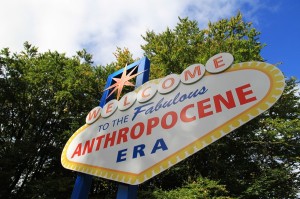
Source: Robyn Woolston
‘Welcome to the Anthropocene’ has become an often-heard slogan to inform us that a new geological era has started, that it is already too late to save Nature. Whereas until recently earthly processes only proceeded very slowly and irrespective of human interventions at the earth’s surface or in the atmosphere, human beings have now become co-producers of a deep geological time itself. Paul Crutzen, a Nobel Prize winning chemist, invented the term about ten years ago to refer to what comes after the Holocene, the relatively moderate geo-climatic period in which agriculture, cities and complex human civilisations came into being. The notion of the Anthropocene suggests that the intertwining of social and ‘natural’ processes is now so intense that Nature as the merely external condition of existence for human beings has come to an end. There is no longer a form of Nature that is not influenced by social, cultural, and economic relations. Henrik Ernstson, eminent political ecologist, recently proffered the term ‘Anthro-Obscene’ to signal the starkly de-politicising and plainly disempowering mobilisation of what nonetheless sounds like a revolutionary concept. Is the ‘Anthropocene’ and its intense human – non-human entanglements not precisely the name for the disavowed historical unfolding of the capitalist political ecology of the past few centuries? Has it not been the historical-geographical dynamic of capitalism and its global spread that has banned the very existence of an external nature?
The Anthropocene heralds the period since the beginning of industrialisation, and therefore capitalism, which brought a qualitative change in the geo-eco-climatic dynamic on earth as a result of the ever intensifying interaction between human beings and their physical conditions of existence. The Anthropocene is therefore nothing else than a geological name for capitalism WITH nature. Ocean acidification, changes in biodiversity, genetic migration and new genetic combinations, climate change, large infrastructures which influence the geodetic dynamic, new materials, global and often unexpected new disease carriers and so on and so forth resulted in ever more complex entanglements of ‘natural’ and ‘social’ processes whereby human beings became active agents in the co-production of the earth’s future history. The Anthropocene is just another name to indicate the End or the Death of Nature. This cannot be undone, however hard we try. Time is irreversible. There is no ideal, lost place, time or ecology, no Arcadia to which we can return. Eden has never existed anyway. The past is foreclosed forever, but the future – now including the future of a thoroughly socialised nature – is radically open. It is within this historically and geographically specific configuration that not only the possibility, but also the necessity for a real politicisation of the environment arises, that choices have to be made and different socio-ecological entanglements have to be experimented with and produced.
The Anthropocene in its Anthro-Obscenic reality displaces the terrain of the political as merely inter-human activity to the environment as a whole, including those processes, which recently were left to (the laws of) nature. Non-human actants and processes are now engaged in a process of politicisation. And this should be recognised fully in its radical materiality. The Anthro-Obscene opens a perspective whereby different nature-realities and social-ecological interactions can be imagined and realised. The political struggle about the nature, direction and development of these interactions and about the process of egalitarian social-ecological co-production of the commons of life is what a progressive politicisation of the environment envisages. Yes, the apocalypse is already here, but that is not a reason for despair or panic. Let us fully recognise the emancipatory possibilities of apocalyptic life!

The ‘green economy’. Source: Nation of Change
Many people would concur with the view that the climate crisis will fundamentally not be solved by hegemonic approaches of the ‘green economy’, by making capital compatible with – if not cashing in on – ecology; they note that energy costs are on the rise, social inequalities increase, rigid nationalisms – if not worse – emerge everywhere, and that the marketisation of everything is being paid for at an extravagant ecological and social cost. Many people know that things can and should be different. However, like me, they do not know what to do or how to get to something not only different, but better. We all share this gnawing and uncanny feeling that hopeless attempts by economic and political elites to translate the ecological and social catastrophe which surrounds us into a ecological and social crisis that can and needs to be managed does not solve the problems but push them into the future or to other places. Indeed, does the dominant rhetoric of the elite not maintain that ‘the situation is serious but not catastrophic’? Is their neoliberal recipe book proffered as guarantee that the disaster will not occur? Don’t they claim that the crisis can be overcome with a bit of goodwill and effort: social unity will be restored, economic growth will recover and ecological problems will be addressed sustainably? ‘Hold on for a while’, they seem to be saying, ‘rescue is on its way!’
Don’t you have the surreptitious feeling that something is wrong about this rhetoric of those who (sometimes literally) want to conserve the existing situation at all cost; that the ecological and social crisis cannot be made manageable with the help of mere technical and organisational adaptations; that the attempts of the elite to reduce the catastrophe to a crisis which only requires ‘good’, ‘participatory’ and ‘ecological’ management only enlarges the anxiety, increases insecurity, and especially, worsens the catastrophe which many already experience?
What would happen if we threw off the fear? If we resolutely accepted that the ecological, social and economic apocalypse is already here, that we live in the Anthro-Obscene, that it no longer needs to be announced as a dystopian promise for an avoidable future (if only the right measures are taken today)? What if we really would believe that things can not only change, but have to? That it really is already too late for many people and ecologies?
Yes but, you might think. After all, there is no catastrophe, we don’t live in the Apocalypse. It was a good wine year, the summer was a bit disappointing but the holidays were sunny, the financial crisis is being addressed without too much pain for me and my siblings, my education proceeds as planned, sustainable environmental technologies are stimulated, the hybrid car really drives smoothly, waste is being reduced, and the new IKEA catalogue promises sustainable entrepreneurship. Furthermore, the green parties are not doing badly in the polls. You’re right. The catastrophe is not for most of you or for me. Crisis, yes, but talking about catastrophe appears a bit overdone.
But perhaps we should not forget the words of the Italian Marxist Amadeo Bordiga: ‘when the ship goes down, so too do the first class passengers’. There is no salvation island where the elites can retreat into splendid isolation (despite their best efforts to do so) he claimed. This slogan is often adopted by ecologists of a variety of stripes or colours. We are all in the same boat. Bill Gates, Al Gore, Jeffrey, Richard Branson, the inhabitants of sinking islands, my son, and even Prince Charles today share the opinion of this notorious communist of the common threat facing the commons. But on closer inspection – I would argue — good old Amadeo was desperately wrong. See the blockbuster movie Titanic once again. A large share of the upper class passengers found a lifeboat; the others remained stuck in the underbelly of the beast. The social and ecological catastrophe is indeed not here for everyone; the apocalypse is uneven. And this is where the ultimate truth of our current predicament is situated. Remember the images of the earthquake in Haiti a few years ago, or the devastation wrought by hurricane Katrina in New Orleans: hundreds of thousands of homeless people, hundreds of deaths, dysentery and malaria spreading fast, exaggerated reports about thieves who stole paltry possessions to stay alive, shortages of drinking water. The earthquake was not the consequence of human interventions in nature, the hurricane perhaps. But what we know very well is that the socio-ecological catastrophe is not caused by the earthquake or the hurricane. It was there long before disaster struck. Nature was not responsible for the post-apocalyptic post-human landscape after the quake. Most Haitians, together with all the others who balance on the verge of survival, have always already lived in the apocalypse, before, during and after the quake. Racial prejudices, dire living conditions and a precarious socio-ecological existence were also the lot of the poor in New Orleans. Or think about the incalculable number of environmental refugees.

Source: FightBack
We have a rough idea about the number that is reaching European shores via the Mediterranean, but we have not a clue about the countless migrants, except through occasional harrowing stories of sunken boats, that fail to make it to the continent, and become fish fodder. It is precisely the combination of ecological, social and economic relations, which pushes them, often with desperately little means, to leave their home countries. They, too, fled a catastrophe. Our apocalyptic times are perversely uneven, whereby the survival pods of the elites are fed and sustained by the disintegration of life-worlds elsewhere.
Consider, for example, how the socio-ecological conditions in Chinese mega-factories, like Foxconn, where our iPhone, iPod, iPad and other gadgets, so indispensable for ‘normal’ life are assembled, make 19th century European cities look like socio-ecological utopias. The social and ecological catastrophe which international elites imposed upon Greece to make sure the European neoliberal model could be sustained a while longer shows that the collapse of daily life is reserved for certain people, so that the others can go on with business as usual. If nuclear power plants close down tomorrow, the lights will continue burning on Putin’s gas. Despite Pussy Riot. And tar sands exploitation or ‘fracking’ will protect us from the disaster of ‘peak oil’ while further pumping up greenhouse gas concentrations in the atmosphere never before found in the earth’s history.
‘Natural’ and ecological disasters show in all their sharpness what we have already known for a long time, namely, the politically powerless and economically weak are paying the price, they always do. The apocalypse is always theirs, and only theirs. While the biblical apocalypse of Saint John announced the final judgment which offered paradise to the chosen few and damned the evil ones, the socio-ecological apocalypse separates the elite from the powerless and excluded.
Perhaps something must be done about the lifeboats. For some, the solution is to seal them off hermetically, to protect them with electric fences and impenetrable walls, to strengthen militarised forces to secure the perimeter of their own little eco-paradise. The zombies of the apocalypse, the hordes at the gates, the motley crew that demands its share of nature, the rebels who ask a new order: they represent the reality of catastrophe today. And this reality should be taken seriously. We all share in it. Eco-warrior, advocate of nuclear energy, incorrigible Malthusian and inventor of the Gaia hypothesis James Lovelock summarised the possible consequences of the uneven apocalypse very eloquently and soberly:
“… what if at some time in the next few years we realise, as we did in 1939, that democracy had temporarily to be suspended and we had to accept a disciplined regime that saw the UK as a legitimate but limited safe haven for civilisation. Orderly survival requires an unusual degree of human understanding and leadership and may require, as in war, the suspension of democratic government for the duration of the survival emergency.”
The emergency situation evoked by Lovelock is not there to make sure everyone survives. It is supposed to be the consequence of the demographic explosion cum ecological disintegration of the Global South as a result of which hordes of eco-zombies will crowd at the gates of the egalitarian social-ecological paradise at the other side of the Channel. An autocratic leadership and the suspension of democracy are precisely needed to keep the gates firmly shut. This might appear a somewhat exaggerated perspective. But is this not exactly what happened over the past few years? Perhaps not so much with regard to climate change (very little has happened on that terrain), but surely with regard to attempts to reduce the economic-financial catastrophe to a manageable crisis. All other problems were shoved aside. Draconian austerity measures were imposed which especially affected the weakest, massive public means were and are mobilised to keep financial institutions afloat, migration is being managed with all possible repressive means. Despite profound and previously unseen protest, only one set of recipes was applied to restore the existing financial-economic order. The elite indeed will, if necessary, use all means available to maintain its status and position.
But does in the generalised forms of resistance reside not only the hope, but the absolute certainty, that change is possible and needed? A change that revolves around the signifiers of democracy, solidarity and the egalitarian management of the commons? Does this not suggest, rather provocatively, that the political project that combines those terms might carry the name ‘communism’; ‘a communism of the commons’. This suggestion breaks so strongly with the currently hegemonic logic and recipes that many will sceptically respond: how can the democratic management of the commons ever be realised? How can the egalitarian and collective management of the commons be organised in the current neoliberal climate which includes the privatisation of nature, the individualisation of daily life, and the fragmentation of the political and ideological landscape? Of course, the critique of the hegemonic project of the green economy is valid, and another approach is necessary, but should we – faced with the coming catastrophes – not rather opt for practical solutions, which maybe do not really question the status quo, but are at least a bit more realistic, less weighted down by history, and feasible today?
Furthermore, the term ‘communism’ probably – and rightly – evokes the horror of the 20th century (the Stalinist terror, the ecological disaster, the social inequality), or at least, the term refers to a radical failure of what was once presented as a utopian solution for society’s ills. Perhaps ‘communism’ is indeed not a good name to refer to a democratic ecological project of the commons. Perhaps we should let fear triumph here too. Or maybe it is better to reserve the term socialism or communism for the elitist and undemocratic mobilisation of the commons for personal gain and the reinforcement of the elite’s power position.

We are all socialists now. Source: Newsweek
In February 2009, Newsweek, not immediately the most radical magazine, stated on its cover “We are all socialists now”. The title evidently referred to the 1.5 trillion dollars of public money that President Barack Obama pumped into the banking system to save Wall Street and to prevent a (foretold apocalyptic) planetary financial meltdown. Shortly afterwards, other countries, including the European Union would follow suit. Trillions of euros, part of the common capital, of our commons, were mobilised to provide the sputtering profit motor with new oil. Is there a better example to show that socialism is a real possibility, that collective means, the commons, can massively and collectively be used to reach a particular social goal, in this case the maintenance of elite positions, the avoidance of the apocalypse for the elite on the back of the weakest? Despite the Spanish Indignados, the Greek outraged, and many Occupy! movements which demand ‘Real Democracy Now’, the assembled elites continue undisturbed, realising their collective phantasmagorical utopia. Indeed, we are living in properly socialist times, a socialism of the elites.

We are NOT all socialists now…..Source: Serr8d.blogspot.se
Is a better example possible that the commons can indeed be used collectively (in this case the collective of the 1% – still a significant number)? That a communism of the elites is precisely the political name for the current neoliberal practice? Putin’s Russia is a good example of the appropriation of the commons by an oligarchic ultra-minority. As Marx stated long ago, history unfolds as a drama (the real socialism of the 20th century) and repeats itself as a farce (the real socialism of the elites today). What the socialist movement of the 20th century mostly failed to realise (the nationalisation of the banks) is being achieved by the elite in a very short lapse of time, in the name of the recovery of and sustainability of capitalism! It appears indeed that the collective management of the commons as such is not the problem. It is certainly not a naive or utopian proposal. The question is rather one of its management by whom and for whom?
Where resides the problem then? What is it that we don’t dare to face? What withholds us from tackling the unequal social-ecological apocalypse? The answer is implicit in what precedes. Not the collective management of the commons, of the environment, is the problem, but rather the undemocratic character of the current type of management. This does not relate to the shortcomings of the institutional and electoral machines of daily policy-making (parliaments, regular elections, public administration, political parties, etcetera – very few still believe in its potential to nurture democratizing and egalitarian change), but to the basis of a democratic society itself. The foundation of democracy is that everyone is supposed to be equal. Democratic equality is not a sociologically verifiable given – we all know that each concrete society knows many clearly observable inequalities – but an axiomatic principle. The democratic is precisely the axiomatic acceptance of the equality of everyone and the recognition of the egalitarian capacity to govern in a concrete context, which is always marked by social and ecological inequalities. That is the truth which is put forward time and again by resistance movements, Indignados, the Arab Spring, the women’s, workers’ and environmental movements. That is why the truth of democracy is not a universal standard. Its universal truth (we are all equal in principle) is carried by the particular group who is wronged as its equality is mis- or unrecognised. That is why we can conclusively state that Al Gore, Richard Branson, the president of the European Central bank, or Angela Merkel are undemocratic, while environmental refugees, climate justice activists, resistance movements against the privatisation of the commons and Occupy! activists, through their political action, reveal the scandal of institutionalised democracy and the necessity of an egalitarian communist restructuration of political, social and ecological relations, although they too are a sociological minority. In this sense, they precisely indicate what really matters in these apocalyptic times. Let’s join them. Translating the egalitarian demand in concrete social-ecological equality is the stake of a real politicisation of the environment. And this requires intellectual courage, social mobilisation, and new forms of political action and organisation. We have nothing to lose but our fear.
* I have taken the term ‘Anthro-Obscene’ from Henrik Ernstson, eminent political ecologists of the Universities of Stockholm, Stanford, and Cape Town, who suggested it as part of the theme for an upcoming workshop on politicizing urban political ecology that we are organising in 2015. This blog is a redacted reflection of a foreword for a fantastic book coming out in 2015: Kennis A. and Lievens M. The Myth of the Green Economy. (London and New York: Routledge).
** Erik Swyngedouw Erik is Professor of Geography at the University of Manchester in its School of Environment and Development. He received his PhD entitled “The production of new spaces of production” under the supervision of David Harvey at Johns Hopkins University (1991). From 1988 until 2006 he taught at the University of Oxford and was a Fellow of St. Peter’s College. He moved to the University of Manchester in 2006. Erik has published several books and research papers in the fields of political economy, political ecology, and urban theory and culture. He aims at bringing politically explicit yet theoretically and empirically grounded research that contributes to the practice of constructing a more genuinely humanising geography.


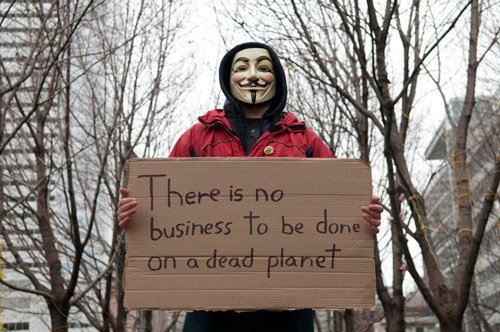
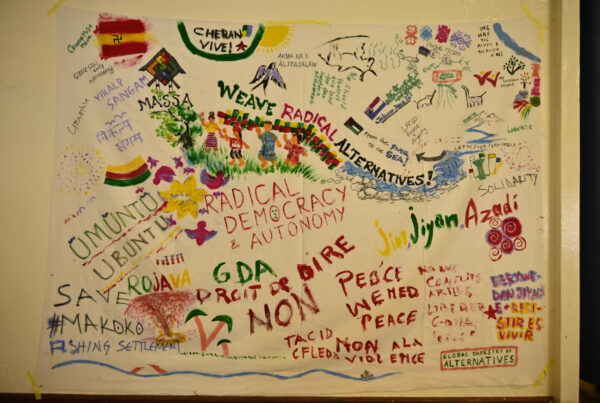
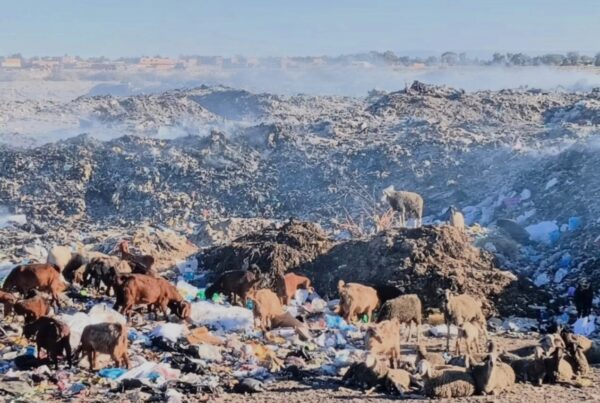
I have some doubts with the text… Of course Erik is right on the question of capitalism as socio-ecology as in Moores work, as well as on his thesis of ecological catastrophy as an utlimately depoliticizing neoliberal ideology (also in Zizek’s work “Ecology as the new opiate of the masses)…
But I have my doubts about the dismissal of the concept of crisis as solely a neoliberal discursive alienation of the enduring socio-ecological catastrophe “to be managed”. I think that crisis is a fundamental concept to understand events as an emerging contradiction of the capitalist socio-ecology, that it is a possibility of hegemonic breakdown… where business as usual cannot continue, and the political struggles re-enters the scene. (As I defended in my text about the legitimation crisis of global climate governance).
Furthermore I think his conclusion is rather superficial, his addressing of “democracy” being rather empty, and leaving aside the whole history of dialectical tension between capitalism and democracy, neglecting the class-struggles that create that tension… I think the search for a political subject within the framework of a capitalist socio-ecology can never ignore the idea of class, and “proletariat” as a political subject – doing so risks to bring the theory back within acceptable liberal boundaries, endangering its politicizing and emancipatory potential.
Reblogged this on synthetic_zero.
Reblogged this on Joseph Ratliff's Notepad.